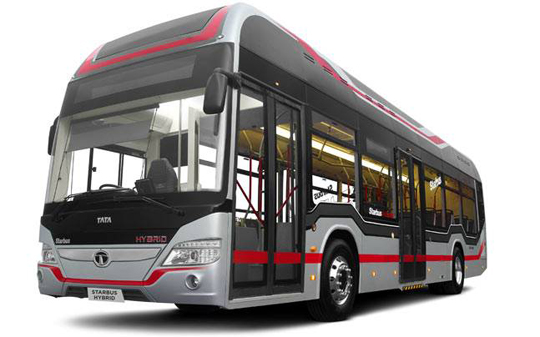Pune, Jan 25: Witn an aim to push green technology in mass public transportation vehicles in India, Tata Motors today launched a fully electric bus and a hybrid one, with indicative prices ranging between Rs 1.6 crore and Rs 2 crore. The company, which is leader in the commercial vehicles space in the country with a market share of around 45 per cent, also showcased its LNG powered bus.

Besides, it also unveiled a bus with fuel cell technology and electric versions of its light commercial vehicles SuperAce, Magic and Magic Iris. "At Tata Motors our aim is to not only comply with emerging regulations of clean and green emissions but also be ahead of the requirements," Tata Motors Commercial Vehicles Executive Director Ravindra Pisharody told reporters here. The biggest opportunity for such buses are in metros for public transportation, he added.
The company has already received order for 25 units of Starbus Hybrid buses from MMRDA Mumbai and deliveries would commence in first quarter of 2017-18. It aims to start deliveries of fully electric buses in next quarter after getting clarity on subsidies for the segment, Pisharody said. "We have been consistently developing and manufacturing products that can contribute to CO2 reductions across all road transport segments and with early investments in new technologies, we are geared up to further strengthen our market leadership," Pisharody said.
The company plans to play an active role in mass public transportation with the new range of future ready buses, he added. The home grown auto major also displayed an articulated bus. When asked about the export plans, Pisharody said the company is ready if orders come in from overseas markets. Commenting on market share in bus segment in domestic market, he said: "Traditionally we had a market share of 30-35 per cent but due to large orders received it would jump to over 45 per cent at the end of this fiscal."
Tata Motors currently designs, develops and manufactures buses in Pune, Dharwad, Pantnagar and Lucknow. It also has a joint venture with Marcopolo of Brazil for fully built bus solutions. It also has an partnership with ACGL of Goa for bus bodies.





Comments
Add new comment